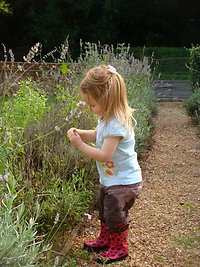
ARTICLE: THE NORMAL NEEDS OF HIGHLY SENSITIVE CHILDREN IN SCHOOL
Over the years, my practice has become busier with work related to parenting highly sensitive children. Two types of parents are most common: (a) parents who are really worried there is something the matter with their child and (b) parents who already think that their child is highly sensitive (has sensory processing sensitivity) and want to support them. All these parents are caring and want the best for their children, but, whether they admit it or not, secretly hope to find a way for their child 'fit in' with expectations of the larger group culture, (school being one of those groups), feeling pressure to adapt to the majority.
Four out of five sensitive children presenting in my practice are boys, which is an interesting statistic when you think that sensory processing sensitivity is distributed equally between the sexes. Children mostly arrive between the ages of 7 and 10, with some as young as 5 and some in their teens. Every single one of these children is causing concern to parents because of their levels of anxiety and distress around their schooling. At home they are usually calmer and happier, the distress being when they start to think about school.
So what's going on? Well, let's start with what sensory processing sensitivity actually is. As Dr Elaine Aron describes it, it is a genetically inherited trait, it is normal, and found in up to 20% of the population in varying degrees. Not only is it found in humans in this ratio, but also animals, fruit flies, fish and so on. A characteristic of all beings with sensory processing sensitivity is the 'pause to check' trait. In other words, rather than move immediately towards something new, the person or animal with SPS will hang back a little, observe and reflect before entering the new situation. Having a number of any tribe, family, or species born with this trait has a direct effect on survival strategies and success. Some situations demand a quick and direct response, but a minority of situations require thought and consideration before going ahead. If everyone responded the same, then a dangerous choice could wipe out an entire clan. The hanging back is not shyness or hesitation, it is a positive strategy.
All highly sensitive children have the following four things in common, without exception: depth of processing, a propensity for over-stimulation or over-arousal, emotional intensity and sensory sensitivity. Apart from those things, sensitive children have just as much individuality and variety of traits within them as anyone else. These four factors of the sensitivity trait do however, affect how they respond to the world around them.
Let's have a look at school from a young sensitive child's perspective. Most of the children I see tell me that school is 'very loud', 'children hurt each other', 'teachers shout' and they are not allowed to 'be quiet'. They also complain that school clothing can be itchy, the floor is hard, the classroom smells funny and people expect them to say things before they are ready. They also dislike people looking at them or making them the centre of attention (even the extravert HSCs) and get very concerned if another child is upset. The walls are full of overstimulating colours and people talk through all the lessons. Considering the four traits of HSCs, school has the potential to be a nightmare, with relentless noise, social interaction, lack of space for quiet reflection and numerous situations that trigger the HSC's intense emotions. It is no wonder that these children often withdraw at school and have meltdowns when they get home. And whilst 70% of HSCs are introverts, all of the above will still affect the other 30% who are extraverts. Sadly, many over-stimulated HSCs turn into anxious adolescents, often being referred for counselling to ‘help’ them meet the demands of a society that fails to recognise their natural needs. Some sensitive teens can develop such levels of anxiety that learning on-line at home is the only way they can complete their education. It is very sad when things have progressed that far; after all, HSCs have such a lot to offer their peers in terms of emotional and moral leadership, giftedness, imagination, insight and understanding.
So what can parents do to help their child's school to offer a more HSC-friendly environment? Information is the key, and if necessary some training for teachers on managing sensitive children at school. HSCs need to have a few minutes of quiet time several times a day in order for their sensitive nervous system to calm from the over-stimulating environment. Given that an HSC's nervous system is highly organised, it is very sad that they often are so over-stimulated that schools sometimes wonder if they have learning difficulties, when the opposite is often the case. Over-stimulation causes levels of cortisol to rise (not a healthy thing if this continues throughout the day) - HSCs are also prone to being affected strongly by drops in sugar levels (resulting in feelings of anger and lack of focus), so opportunities to eat more often are very important, especially protein snacks, can help to keep levels balanced.
Emotionally, HSCs are very tuned in to their own and others feelings. They cannot quickly recover from wounds and upset that most children simply brush off with ease. This is part of their charm and depth and an essential part of who they are. HSCs also have a strong startle reflex - this means a loud noise or sudden emotional buffeting may cause a big effect. HSCs in general have very quick reflexes, an advantage in some ways, and not in others. This startle reflex does not go away in adulthood and their deep and intense emotional responses mean that bullying in particular (whether physical or emotional), needs to be resolved promptly and permanently. HSCs become highly distressed when witnessing cruelty - rather than trying to 'toughen them up', it is important to recognise that part of the role of sensitive individuals in terms of survival is to be the 'Canary in the mine' - announcing that something is not right - these warnings cannot be heard if sensitive individuals lose their voice. Rather, encourage them to talk about what distresses them and value their insights into the kind of behaviour that makes the world a better place. Teachers can help with this by being calm and kind authority figures, willing to listen and accepting of sensitivity.
So, going back to the ratio of boys and girls attending my practice - I do think that most of the boys are there because their sensitivity is considered alien within the larger culture. At school, rough playground games, shouting and pushing, competing and dominating are considered normal for boys. Even well-meaning fathers question whether they should allow their sons to cry (even at age 7), or give them hugs or pull them onto their laps. They question the child's preference for sports that are done alone rather than rough games in teams, even wondering if the normal behaviour of these sensitive young boys is a sign of being ‘gay’ (another minority normal trait majority culture struggles with). In case you are wondering, there are no more gay or lesbian highly sensitive people than there are in the non-highly sensitive population.
The bottom line is that it is harder for sensitive male children. The most common criticism that male HSCs have regarding their father is 'he doesn't listen'. I believe that fathers are conflicted as to what they should expect from their sensitive sons - tellingly, they are less conflicted in responding to sensitive daughters needs. Given this gender question, it is not difficult to imagine that unconsciously, even teachers might be expressing their frustrations at trying to understand a sensitive child, particularly an articulate, emotional or over-stimulated boy. I do recommend Dr Ted Zeffs book 'The strong sensitive boy' as a guide for parenting male HSCs, it is full of advice and also the recollections of now-adult sensitive men about what worked for them and what didn't.
Given that school can be so demanding for HSCs, just to spend a whole day in that environment, I feel that probably the best advice I could give parents is not to make any more demands once the child is out of school. Let them choose their own activities, give them half an hour on their own after school, to calm their nervous system. Feed them something nutritious as soon as they exit the school gate. Don't make them attend play-dates or after school activities unless they are asking to do so. Also, remember that HSCs respond best to praise. Correction or criticism needs to be very light. Make sure your child has quiet time before bed and an opportunity to talk about anything that is bothering them before sleep, so they don't continue to worry during the night. Above all, let them know you appreciate their sensitivity, their thoughtfulness, the way they think carefully about things, the kindness they show to friends, siblings and pets. That you love them just the way they are.
Article writes by Barbara Allen (c). For more information on sensitivity, go to Dr Elaine Aron's website at www.hsperson.com
